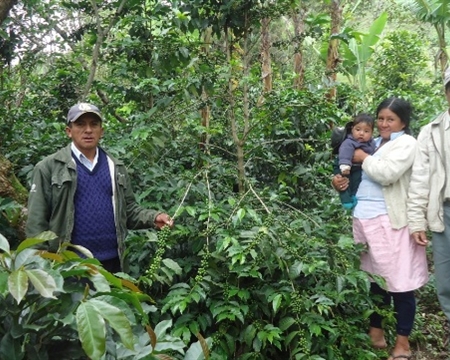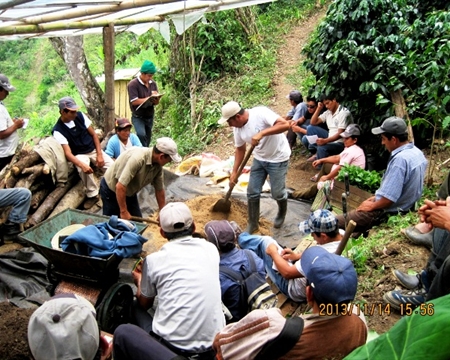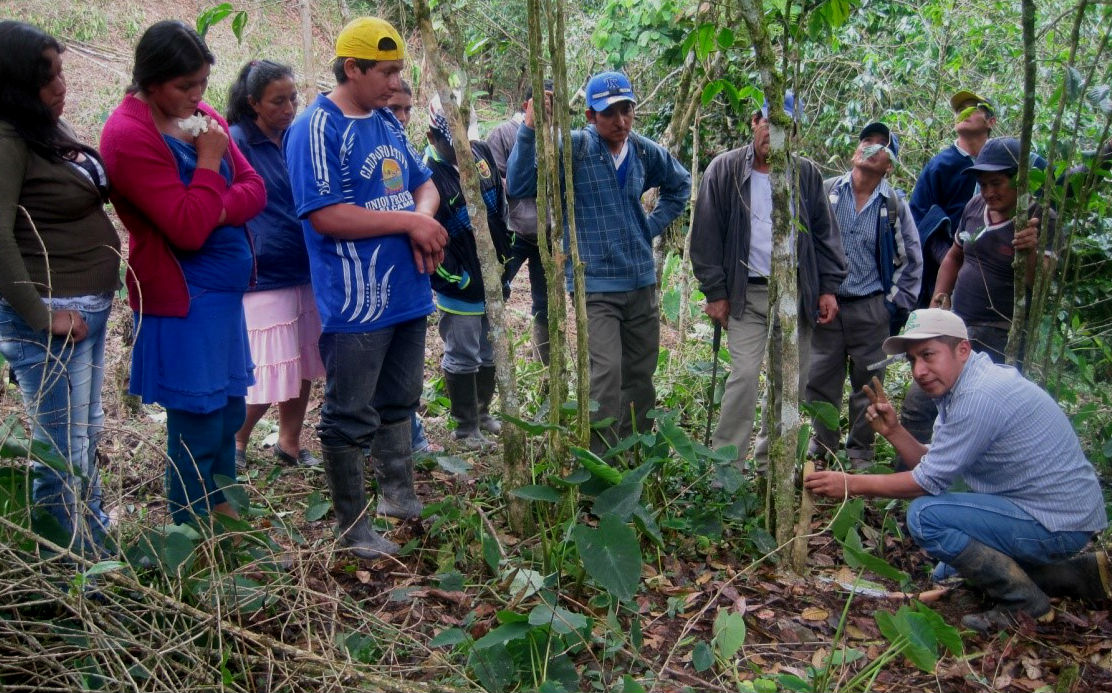PERU FTO NORANDINO
Bags 0
Warehouses Oakland
Flavor Profile Lemon zest, caramel, cocoa powder
Out of stock
About this coffee
Grower
Cooperativa Agrícola de Servicios Múltiples Norandino (Norandino) | 7000 members
Altitude
1100 – 1700 masl
Variety
Caturra, Bourbon, Catuai, Pache, Villa Sarchi, and Catimor
Soil
Clay minerals
Region
Piura, Amazonas, Cajamarca, and San Martin regions, Peru
Process
Fully washed and dried in the sun
Harvest
April - September
Certification
Fair Trade (FT FLO/USA) | Organic
Coffee Background
In Peru, the bulk of production comes from small farms owned and managed by indigenous people who follow organic farm management practice attuned to their cultural connection with the land. Producers typically cultivate coffee on just a few acres of land intercropped with shade trees, bananas, corn, and beans. They carefully harvest and sort cherries before depulping, fermenting, washing, and drying the coffee using their own micro-mills. Simultaneously, cooperatives carry out activities that often go unnoticed but are crucial for small producers. These cooperatives are often divided into smaller locally run organizations, larger regional organizations, and even larger umbrella organizations. The local cooperatives focus on training producers in best organic practices and invest in basic infrastructure needs like road improvements and establishing local warehouses. The regional cooperatives focus on creating credit for producers and investing in social programs on a larger and more impactful scale, using the collective resources generated from the sale of coffee. Environmental training programs, healthcare initiatives, life insurance, and educational opportunities are just some of the ways these cooperatives strive to improve the quality of life for coffee producers and their families.
Cooperativa Agrícola de Servicios Múltiples Norandino (Norandino) is an umbrella cooperative formed to support three regional cooperatives called CEPICAFE, CENFROCAFE, and Sol y Café. Combined, these organizations have approximately 7000 producer-members who cultivate 25,000 acres of coffee in the regions of Piura, Cajamarca, Amazonas and San Martin. Preparing coffee for export produced through these regional and local cooperatives is all coordinated through Norandino, which ensures traceability and quality control throughout the post-harvest process. Norandino boasts one of the most state-of-the-art dry mill operations in Northern Peru along with a fully staffed and SCA certified cupping lab equipped to cup through thousands of samples and identify the potential for every coffee that is received. The cupping lab also serves as a training facility for the entire region and a place to take the Q certification exam.








